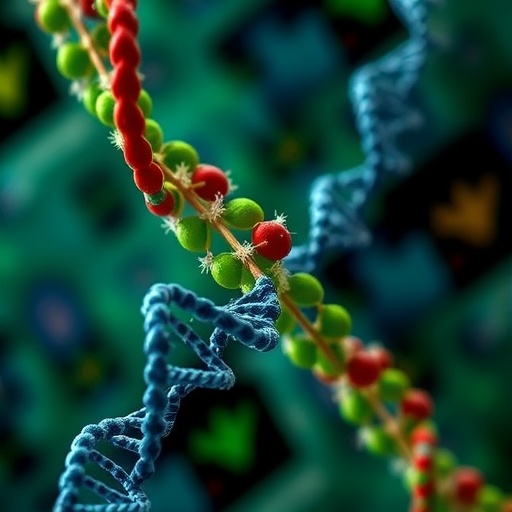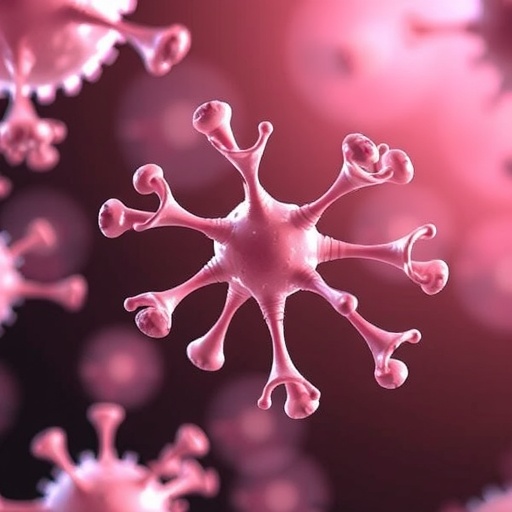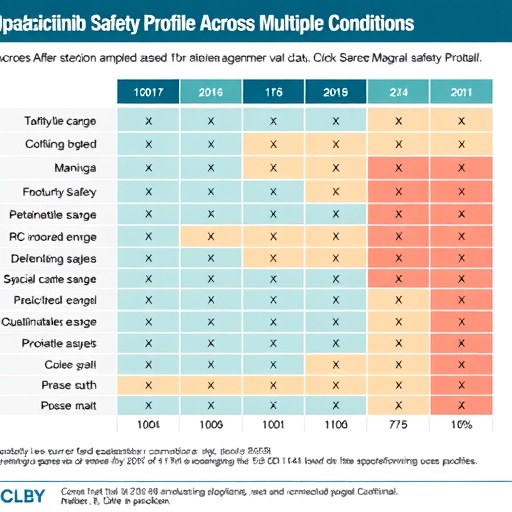
Recent research has brought to light the complex interplay between genetics and behavior concerning food addiction in individuals battling obesity. The study conducted by Carbone, Rania, Catalano, and their team provides a novel perspective on how genetic predispositions can influence food-seeking behaviors, thus impacting weight and health. This exploration lends insight into the neurological mechanisms that drive cravings and suggests that food addiction may be more entrenched in our DNA than previously understood.
At the heart of this research lies the concept of food addiction as a behavioral disorder marked by the compulsive consumption of palatable foods, which are often high in sugar and fat. As our society increasingly grapples with rising obesity rates, understanding the link between genetics and such behaviors becomes paramount. The study highlights certain genes that may predispose individuals to heightened responses to food stimuli, leading to behaviors akin to substance addiction.
One of the primary focal points of the research is the brain’s reward system, which operates under similar mechanisms for both food and narcotics. When we consume tasty foods, neurotransmitters like dopamine are released, inducing feelings of pleasure. In some individuals, this response is exaggerated due to genetic variations, making them more susceptible to cravings and less able to regulate their intake effectively. This phenomenon mirrors findings in the field of substance abuse, reinforcing the notion that food addiction may indeed function like a drug addiction.
Moreover, the researchers delve into specific genetic markers that correlate with an increase in food-related reward sensitivity. By analyzing the genomes of individuals with varying degrees of obesity, they identified particular alleles associated with more pronounced cravings and compulsive eating behaviors. For instance, the FTO gene, a well-established risk factor for obesity, was among those highlighted for its role in influencing food preferences and consumption patterns.
The study additionally emphasizes environmental factors that interact with genetic predispositions. While genes set the stage for susceptibility, it is the surrounding environment – such as access to unhealthy food options and cultural attitudes towards diet – that determines how these genetic factors express themselves in behaviors. This multifaceted approach underscores the complexity of obesity, advocating for a framework that considers both intrinsic and extrinsic dimensions to develop effective treatment strategies.
Furthermore, the research opens the floor for broader discussions regarding the stigma surrounding obesity and eating disorders. Understanding food addiction through a genetic lens can mitigate the societal blame placed on individuals struggling with these issues, fostering a more empathetic perspective. Tackling obesity may require shifting the dialogue to recognize that conscious willpower is not the sole determinant in the battle against excessive eating; rather, biological factors play a crucial role.
The implications of this study extend beyond individual understanding; they could inform public health policies and intervention programs aimed at mitigating obesity rates. If food addiction is indeed genetically influenced, tailored strategies involving genetic screening might provide pathways for individuals to better manage their conditions. Personalized dietary and psychological approaches that consider an individual’s genetic makeup could significantly enhance treatment effectiveness.
Moreover, the researchers advocate for an integrated approach to addressing food addiction. Combining behavioral therapies with nutritional education and potentially pharmacological interventions could provide those affected with comprehensive support. As our understanding of the genetic links to food addiction deepens, there may also be prospects for developing targeted medications that could help in moderating cravings and managing weight more effectively.
As the conversation around obesity evolves, it is crucial for healthcare professionals, policymakers, and the public to acknowledge the multifaceted nature of food addiction. The findings from Carbone et al. serve as a catalyst for this dialogue, highlighting that the battle against obesity is not simply about calories in versus calories out but involves a complex web of genetic, psychological, and societal factors.
In conclusion, the exploration of food addiction from a genetic perspective not only enhances scientific discourse but also holds the potential to transform how society perceives and addresses obesity. As researchers continue to unravel the intricate links between genetics and behavior, there is hope for creating more effective prevention and treatment strategies. The future of obesity intervention lies in an understanding that combines genetic insights with compassionate approaches to care, ultimately aiming to reduce the stigma associated with this multifaceted health challenge.
In summary, this landmark study sets the stage for a more nuanced understanding of food addiction within the context of obesity. By recognizing the genetic underpinnings of compulsive eating behaviors, society may take significant steps towards more informed public health strategies, fostering an environment of support and empathy rather than blame. The road ahead is paved with opportunities for innovative research, targeted health interventions, and an improved quality of life for those affected by obesity and food addiction.
Subject of Research: Food addiction and its genetic underpinnings in relation to obesity.
Article Title: Understanding food addiction in obesity: a genetic perspective.
Article References:
Carbone, E.A., Rania, M., Catalano, F. et al. Understanding food addiction in obesity: a genetic perspective. J Eat Disord 13, 191 (2025). https://doi.org/10.1186/s40337-025-01387-8
Image Credits: AI Generated
DOI: 10.1186/s40337-025-01387-8
Keywords: food addiction, obesity, genetics, brain reward system, FTO gene, behavioral disorder, public health, personalized intervention, cravings, neurotransmitters.
Tags: behavioral disorders related to foodcompulsive eating behaviorsdopamine and pleasure responseenvironmental factors in obesityfood addiction research findingsgenes influencing food-seeking behaviorgenetic factors in food addictionimpact of genetics on obesityneurological mechanisms of cravingsobesity and genetic predispositionreward system in food addictionsugar and fat consumption patterns




